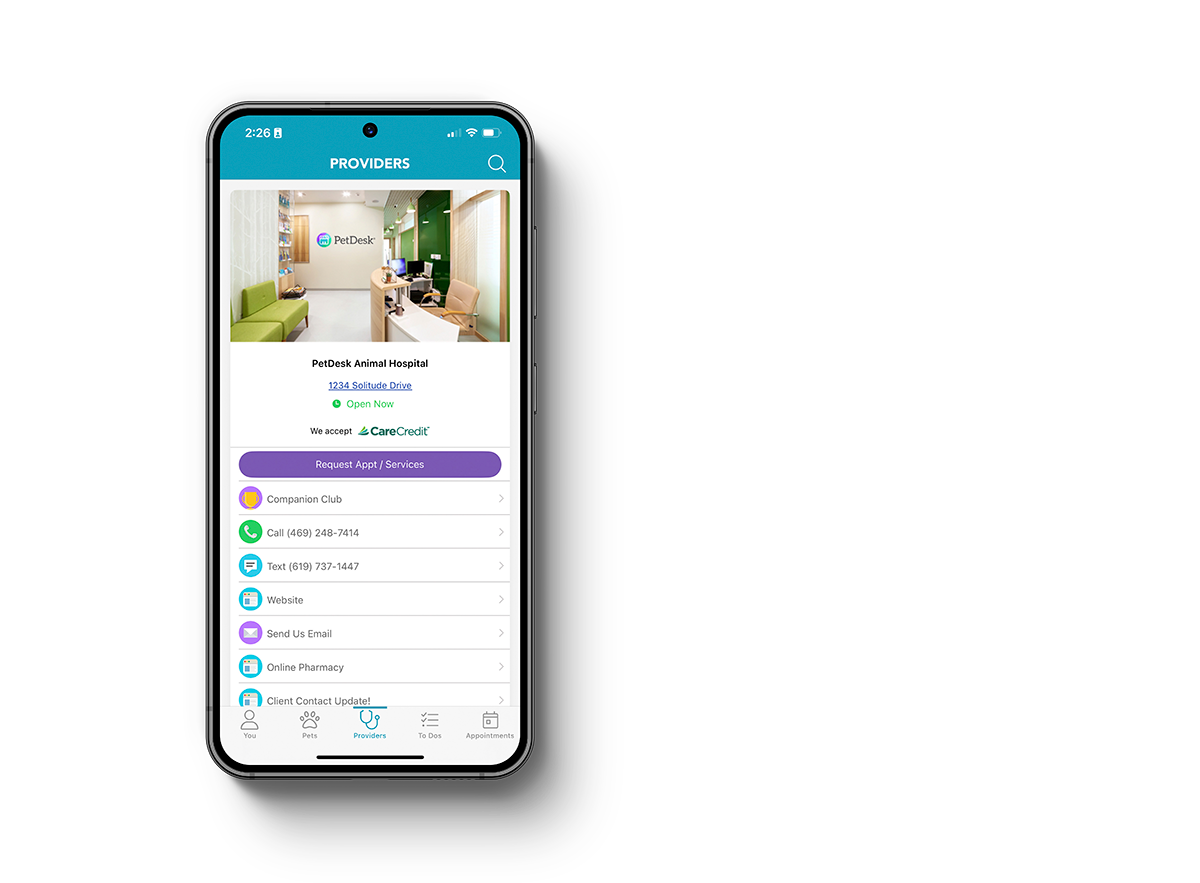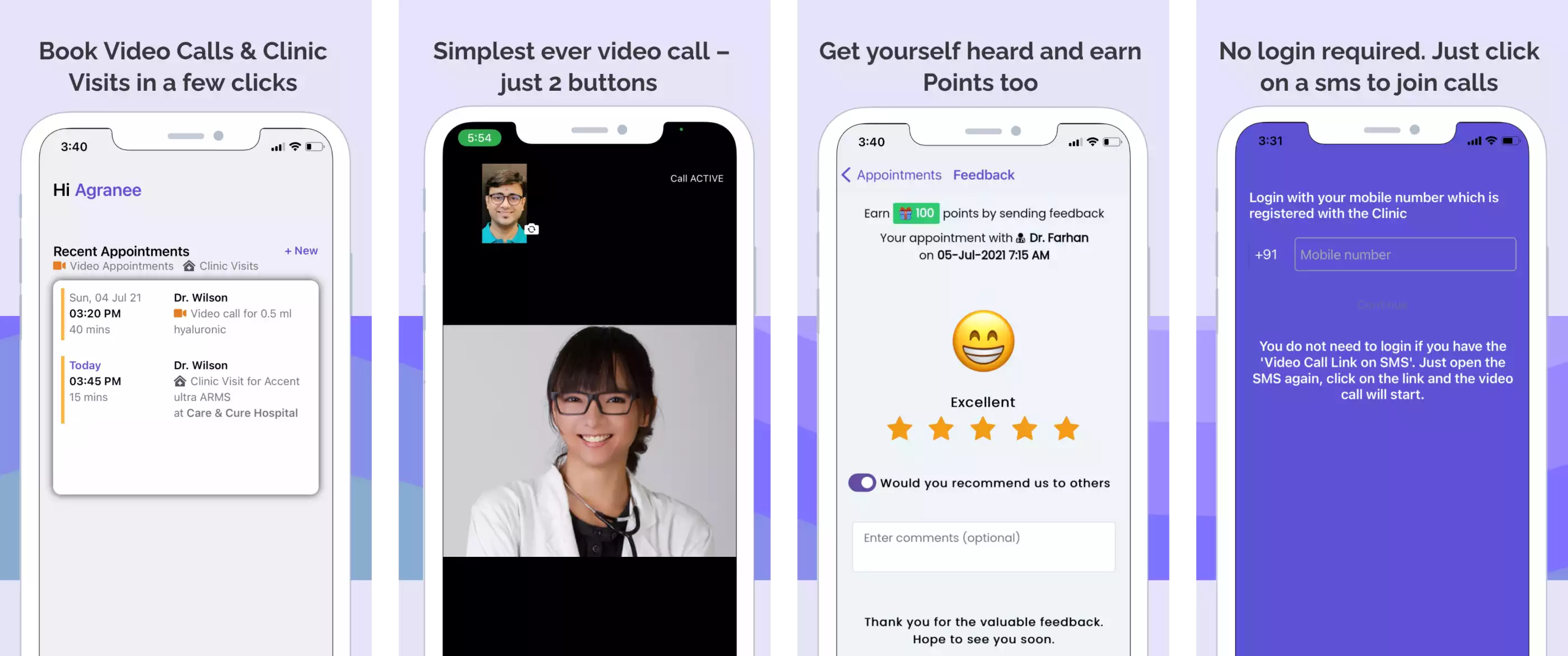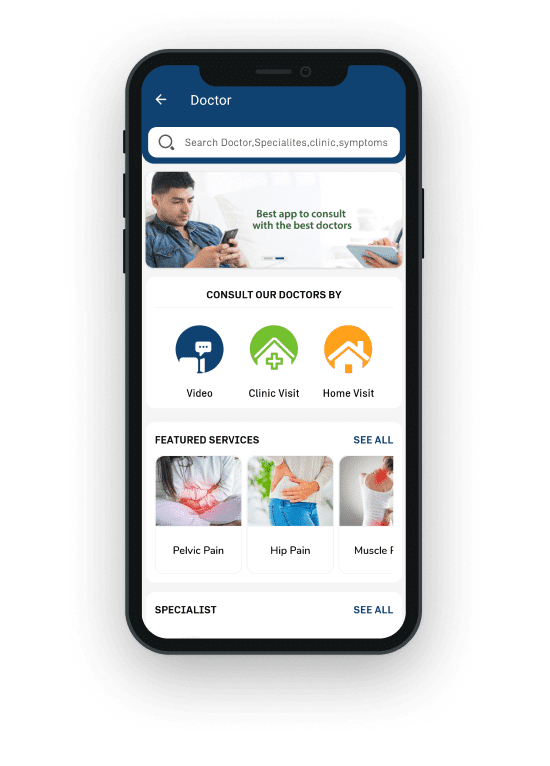The Benefits of Implementing a Mobile App for Clinics in Today's Healthcare
The Benefits of Implementing a Mobile App for Clinics in Today's Healthcare
Blog Article
The Future of Health Care: Why Clinics Required a Mobile App Today
As the medical care landscape remains to develop, centers deal with installing stress to adapt to individual expectations for better benefit and accessibility. The assimilation of mobile applications can offer as a vital technique for boosting individual engagement and streamlining procedures. By leveraging innovation to enhance communication and provide necessary solutions, facilities not just resolve present demands however additionally position themselves for future success. The effects of this change extend beyond simple operational performance; they could redefine patient partnerships and care distribution in extensive ways. What might this change appear like for both clinics and people?
Transforming Patient Expectations
As the landscape of medical care develops, person assumptions are undertaking a significant transformation. Today's patients are progressively looking for benefit, access, and individualized treatment.
Additionally, clients are becoming much more informed and encouraged, typically looking into conditions and therapies on-line prior to examinations. This increased awareness is coupled with a need for transparency in health care processes, consisting of cost estimates and treatment choices. Because of this, carriers are forced to adjust by embracing electronic tools that boost the client experience.
The expectation for prompt and reliable communication has never been higher, with many people thinking about responsiveness a vital part of top quality treatment. mobile app for clinics. In this progressing landscape, healthcare companies have to acknowledge these changing assumptions and take advantage of mobile applications to foster a much more patient-centric approach, guaranteeing that they not just fulfill however go beyond the criteria set by today's enlightened customers
Enhancing Patient Involvement

Mobile applications help with interaction between individuals and health care suppliers, allowing real-time appointment scheduling, tips for medicine adherence, and straight messaging features. These performances not just boost comfort yet also build a sense of liability among individuals. Mobile applications can offer academic web content tailored to private requirements, assisting individuals much better understand their problems and therapy alternatives.
The integration of gamification aspects within medical care applications can also motivate clients to engage in healthy and balanced actions, enhancing favorable lifestyle modifications. Ultimately, boosting individual interaction with mobile applications leads to enhanced health and wellness end results, greater person fulfillment, and a more collaborative healthcare experience.
Improving Facility Workflow
Simplifying facility operations is important for enhancing workflow performance and enhancing patient care. The application of mobile applications can significantly reduce administrative worries, enabling healthcare service providers to concentrate more on individual communications. By automating consultation organizing, patient check-ins, and invoicing procedures, facilities can lessen wait times and improve overall functional efficiency.
Mobile applications additionally help with real-time accessibility to client records, making it possible for health care specialists to make enlightened decisions quickly. This immediacy not only boosts the top quality of care yet additionally decreases the possibility of mistakes related to lost or dated details. Leveraging mobile technology supports a more orderly approach to handling patient follow-ups and treatment strategies, ensuring that no essential actions are forgotten.
Furthermore, mobile apps can enhance inventory monitoring by supplying clinics with tools to keep track of supplies and medicines efficiently. This enables prompt replenishment and assists avoid disturbances in individual care due to equip lacks. By incorporating these capabilities into their everyday operations, clinics can develop an extra effective and natural environment, inevitably resulting in enhanced person outcomes Learn More and satisfaction. Welcoming mobile innovation is not simply a pattern; it is a needed evolution in the health care landscape.
Improving Communication Channels
Reliable communication is frequently mentioned as a keystone of quality medical care delivery. In today's hectic medical setting, mobile applications can considerably enhance interaction channels in between clinics, people, and healthcare carriers. By incorporating mobile applications right into their operations, clinics can facilitate real-time communications, guaranteeing that patients receive timely details concerning their visits, test results, and therapy strategies.
Mobile apps likewise empower patients to interact straight with their medical care teams with safe messaging functions. This direct line of interaction cultivates a feeling of engagement and enables immediate information of concerns, which can lead to better adherence to therapy procedures. In addition, push notices can advise clients of upcoming visits or drug timetables, lowering no-show rates and boosting overall health and wellness end results.

Remaining Competitive in Health Care
In a swiftly advancing medical care landscape, companies have to focus on development and adaptability to keep an one-upmanship. The combination of mobile applications into medical care services is no much longer optional; it is essential for facilities aiming to boost client engagement, simplify procedures, and boost total solution delivery.
As clients progressively depend on electronic platforms for health and wellness management, clinics that fall short to embrace mobile modern technology threat falling behind. A properly designed mobile app can provide functions such as consultation scheduling, telemedicine appointments, and accessibility to medical documents, giving patients with comfort and cultivating loyalty.

Competitors are also spending in mobile services, so staying ahead calls for continuous improvement and staying informed regarding technical innovations. Facilities need to not only apply mobile applications however additionally take part in normal websites updates and refinements. Ultimately, the successful combination of mobile modern technology will identify forward-thinking medical care companies and set the standard for patient-centric treatment in a digital globe.
Conclusion
In final thought, the combination of mobile applications in centers is essential to resolve the evolving landscape of person expectations. Eventually, try these out the critical execution of mobile apps stands for a crucial action towards supplying available and personalized medical care, therefore satisfying the requirements of today's equipped clients.
Inevitably, enhancing person interaction with mobile applications leads to enhanced health outcomes, better patient fulfillment, and a more collective healthcare experience.Mobile applications additionally help with real-time accessibility to patient records, enabling healthcare experts to make educated decisions swiftly. In today's fast-paced clinical setting, mobile applications can substantially boost interaction channels between facilities, individuals, and health care providers.Mobile applications also empower clients to interact straight with their medical care groups through protected messaging attributes. Inevitably, the critical implementation of mobile apps represents an important action towards providing customized and accessible medical care, thus meeting the requirements of today's encouraged individuals.
Report this page